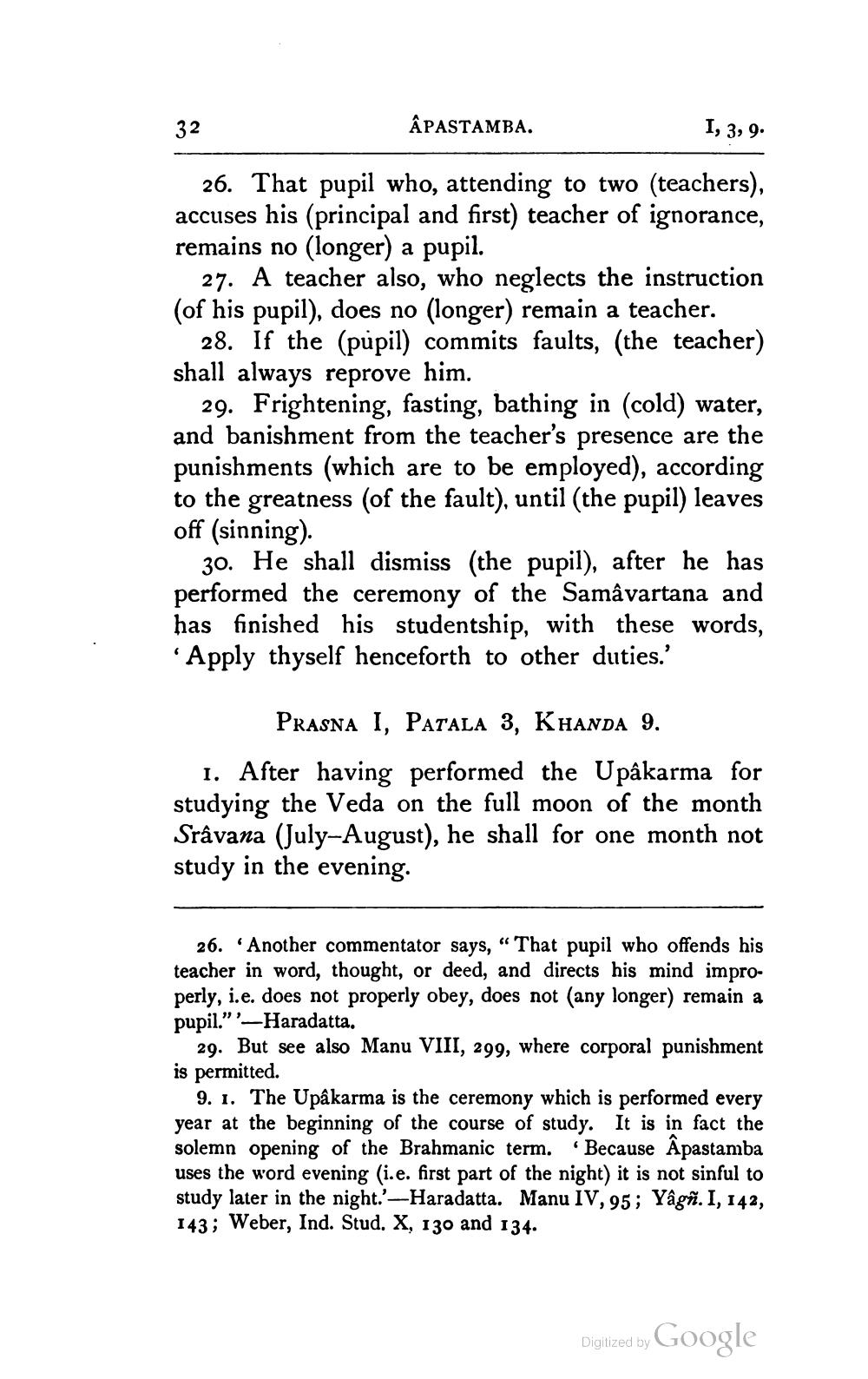________________
32
ÂPASTAMBA.
I, 3, 9.
26. That pupil who, attending to two (teachers), accuses his (principal and first) teacher of ignorance, remains no (longer) a pupil.
27. A teacher also, who neglects the instruction (of his pupil), does no (longer) remain a teacher.
28. If the (pupil) commits faults, (the teacher) shall always reprove him.
29. Frightening, fasting, bathing in (cold) water, and banishment from the teacher's presence are the punishments (which are to be employed), according to the greatness (of the fault), until (the pupil) leaves off (sinning).
30. He shall dismiss (the pupil), after he has performed the ceremony of the Samâvartana and has finished his studentship, with these words, 'Apply thyself henceforth to other duties.'
PRASNA I, PATALA 3, KHANDA 9.
1. After having performed the Upâkarma for studying the Veda on the full moon of the month Srâvana (July-August), he shall for one month not study in the evening.
26. 'Another commentator says, "That pupil who offends his teacher in word, thought, or deed, and directs his mind improperly, i.e. does not properly obey, does not (any longer) remain a pupil."-Haradatta.
29. But see also Manu VIII, 299, where corporal punishment is permitted.
9. 1. The Upâkarma is the ceremony which is performed every year at the beginning of the course of study. It is in fact the solemn opening of the Brahmanic term. "Because Apastamba uses the word evening (i.e. first part of the night) it is not sinful to study later in the night.'-Haradatta. Manu IV, 95; Yâgn. I, 142, 143; Weber, Ind. Stud. X, 130 and 134.
Digitized by
Google




